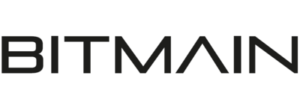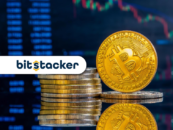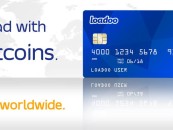
Top 15 Most Well-Funded Blockchain Startups in Zug’s Crypto Valley
by Fintechnews Switzerland January 30, 2019In just a few years, the canton of Zug has emerged as a major blockchain hub with now over 380 blockchain companies domiciled in the canton.
Today, Zug, nicknamed Crypto Valley for the large number of blockchain startups there, hosts some of the world’s most notable and successful ventures in the space including Ethereum, Lisk, ConsenSys, and Blockhaus.
Some of them have raised hundreds of millions in funding and received backing from prominent investors. The following 15 companies are among the most well-funded blockchain startups based in Zug according to data from Crunchbase.
Bitmain – US$764.7M

Bitmain is a company headquartered in Beijing that designed application-specific integrated circuit (ASIC) chips and software for bitcoin mining. Bitmain serves customers globally with industry-defining technology – blockchain securitization, AI machine learning and more. Bitmain’s fintech hub including a decentralized exchange is located in Switzerland. The company has raised US$764.7 million according to Crunchbase and is preparing for an initial public offering (IPO) in Hong Kong.
Hdac Technology – US$258M

Hdac Technology is developing a blockchain-based platform for the Internet-of-Things (IoT) backed by Hyundai BS&C. The IoT contract platform based on blockchain not only exchanges but also restricts the usage of connected devices. It allows IoT devices to quickly and effectively communicate, handling identity, authentication, data storage and micro-payments. Hdac Technology has raised US$258 million in its initial coin offering (ICO).
Tezos – US$232M

Tezos is a new platform for smart contracts and decentralized applications. The Tezos blockchain can evolve by upgrading itself. Token holders vote on amendments to the protocol, including amendments to the governance mechanism itself, to reach social consensus on proposals. Tezos was designed to facilitate formal verification to improve the security of smart contracts and decentralized applications. The technology is overseen by the Tezos Foundation based in Zug. Tezos has raised US$232 million in its ICO, according to Crunchbase.
Dfinity – US$195M

Dfinity is a blockchain-based cloud computing project that aims to develop a decentralized “Internet computer that will become the cloud 3.0” and reduce the costs of cloud services. The Dfinity network is self-governing through the use of an adaptive network called the Blockchain Nervous System (BNS) and is also capable of achieving transaction finality at an average speed of 7.5 seconds due to advancements in random number generation and selection. The Dfinity protocol uses Verifiable Random Functions (VRFs), BLS Cryptography and the Threshold Relay technique (powered by a random beacon) to achieve these speeds. Dfinity has raised US$195 million in funding.
Bancor – US$152.3M

Bancor is a blockchain protocol that allows users to convert between different tokens directly as opposed to exchanging them on cryptocurrency markets. The Bancor Protocol is a standard for the creation of Smart Tokens, cryptocurrencies with built-in convertibility directly through their smart contracts. Bancor utilizes an innovative token Connector method to enable formulaic price calculation and continuous liquidity for all compliant tokens, without needing to match two parties in an exchange. Smart Tokens interconnect to form token liquidity networks, allowing user-generated cryptocurrencies to thrive. Bancor has raised US$152.3 million in funding, according to Crunchbase.
Waves Platform – US$142M

The Waves Platform is a global public blockchain platform, founded in 2016. It offers a shared infrastructure, as well as easy-to-use, highly functional tools to make blockchain available to every person or organization. Waves focuses on custom blockchain tokens operations. National currencies transfer is maintained on the Waves blockchain through compliant gateway operators. Waves has raised US$142 million in funding, according to Crunchbase.
SEBA Crypto – US$103M

SEBA Crypto is building a bank offering cryptocurrencies services to companies and investors. It is seeking a banking and securities dealer license to manage cryptocurrency trading and investments for banks and qualified investors and also aims to provide corporate financing, including advising on ICOs, and other cryptocurrency and banking services to traditional corporate clients and cryptocurrency groups. The company is headed by former UBS managers Guido Buehler as chief executive and Andreas Amschwand as chairman and raised US$103 million in funding in September 2018.
Status – US$100M

Status is an open source, Ethereum-based app that allows users to chat, transact, and access the world of decentralized apps (DApps) on the decentralized web. Status is also an encrypted private messenger that allows users to send payments and smart contracts to friends from within chats, using a peer-to-peer protocol that doesn’t rely on centralized servers. Status raised US$100 million in its ICO.
Cardano – US$62.2M

Cardano is an open source, decentralized public blockchain and cryptocurrency project. Cardano is developing a smart contract platform which seeks to deliver more advanced features than any protocol previously developed. The project is overseen by the the Cardano Foundation based in Switzerland. Cardano has raised US$62.2 million in funding, according to Crunchbase.
Nexo – US$52.5M

Nexo is a fintech application designed to give instant crypto-backed loans to users. The platform is powered by Credissimo, a leading fintech group that has been serving millions of customers across Europe for the past decade. Nexo has raised US$52.5 million in funding, according to Crunchbase.
ICON – US$45M
![]()
The ICON project is building one of the largest decentralized networks in the world. The purpose is to provide a platform where players from financial, security, insurance, healthcare, educational, and commerce industries and beyond can coexist and transact on a single network. ICON raised US$45 million in its ICO in 2017.
Xapo – US$40M

Xapo offers a secure bitcoin wallet and cold storage vault. The Xapo Vault consists of physical servers located around the globe that the company says is protected by biometric scanner access, 24-7 video surveillance, and armed guards. The servers are in undisclosed locations underground, according to CEO and entrepreneur Wences Casares. Xapo has raised US$40 million in funding.
Ambrosus – US$32.5M

Combining high-tech sensors, blockchain protocol and smart contracts, Ambrosus is building a universally verifiable, community-driven ecosystem to assure the quality, safety and origins of products. The company seeks to enable a more secure and autonomous supply chain, improve distribution processes and allow consumers to easily see where their products come from and what is really in them. Ambrosus raised US$32.5 million in its ICO.
Saga – US$30M

Saga is a stablecoin project overseen by the Saga Foundation. Saga is designed to address legitimate concerns expressed by policy makers, regulators and market participants regarding cryptocurrencies, mainly their anonymity, lack of underlying value and high volatility. It aims to promote a low-volatility environment, combining the virtues of blockchain technologies with algorithmic representations of financial tools. Saga raised US$30 million in funding last year.
Aragon – US$25M

Aragon is a project that aims to disintermediate the creation and maintenance of organizational structures by using blockchain technology. It provides the tools for anyone to become an entrepreneur and run their own organization. Aragon requires only the Internet to function, implementing basic features such as governance, fundraising, payroll and accounting. Aragon raised US$25 million in its ICO.
Featured image credit: Pixabay





